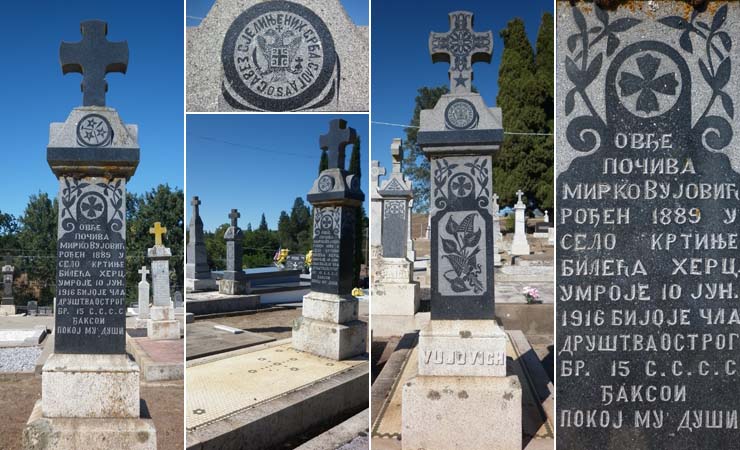1889 - 1916
ОВЂЕ
ПОЧИВА
МИРКО ВУЈОВИЋ
РОЂЕН 1889 У
СЕЛО КРТИЊЕ
БИЛЕЋА ХЕРЦ.
УМРОЈЕ 10 ЈУН.
1916 БИЈОЈЕ ЧЛА.
ДРУШТВА ОСТРОГ
БР. 15 С. С. С. С.
ЂАКСОИ
ПОКОЈ МУ ДУШИ
A great man is one who collects knowledge the way a bee collects honey and uses it to help people overcome the difficulties they endure - hunger, ignorance and disease!
- Nikola Tesla
Remember, remember always, that all of us, and you and I especially, are descended from immigrants and revolutionists.
- Franklin Roosevelt
While their territory has been devastated and their homes despoiled, the spirit of the Serbian people has not been broken.
- Woodrow Wilson

1889 - 1916
ОВЂЕ
ПОЧИВА
МИРКО ВУЈОВИЋ
РОЂЕН 1889 У
СЕЛО КРТИЊЕ
БИЛЕЋА ХЕРЦ.
УМРОЈЕ 10 ЈУН.
1916 БИЈОЈЕ ЧЛА.
ДРУШТВА ОСТРОГ
БР. 15 С. С. С. С.
ЂАКСОИ
ПОКОЈ МУ ДУШИ